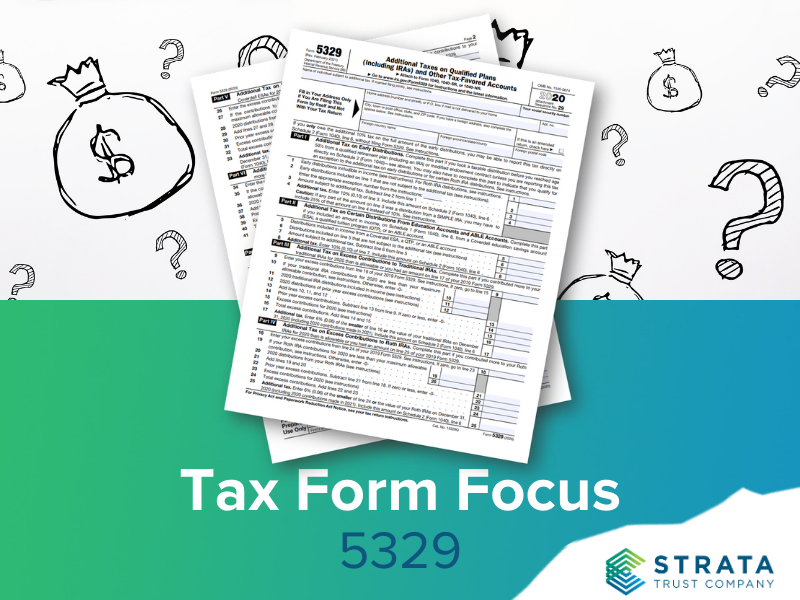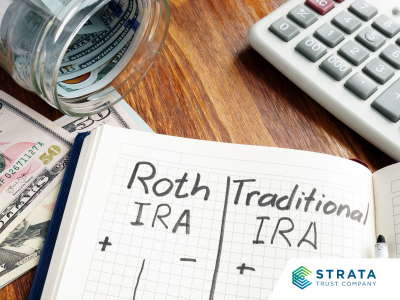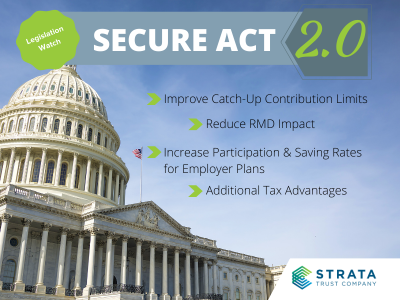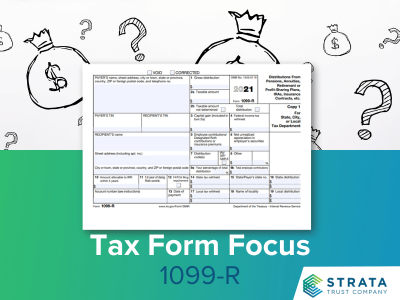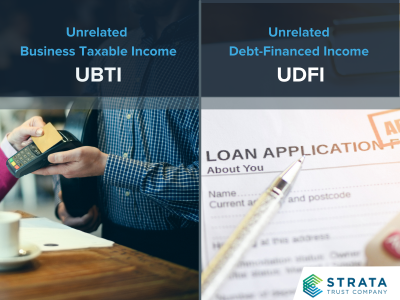As a self-directed IRA owner, you should monitor the tax forms related to IRA investing to ensure you’re receiving the tax advantages available to you and paying tax when necessary. Even if you engage a professional to prepare your tax returns or assist with your investments, understanding the purpose of these forms and reviewing them to make certain they are accurate is critical because these forms affect your tax liability for the year.
This edition of the Tax Form Focus series covers IRS Form 5329, Additional Taxes on Qualified Plans (including IRAs) and Other Tax-Favored Accounts. You may be required to file this form with your 2020 income tax return to claim an exception to a penalty tax or to pay the tax owed.
IRS Form 5329 is required in the following situations:
1. You Want to Claim an Exception to the 10% Early Distribution Tax
If you took money or property out of your IRA, payable to yourself, in 2020, you typically must include the amount of your distribution in your taxable income for 2020 (unless you took a qualified distribution from a Roth IRA). If you are younger than age 59½ at the time of the distribution, you may also owe a 10% early distribution tax. For SIMPLE IRAs, this tax jumps to 25% if the distribution occurs within two years of your first SIMPLE IRA contribution under your employer’s plan. These taxes are designed to discourage retirement savers from taking money out of their accounts before retirement. The additional tax is waived, however, if the distribution is taken for one of the following reasons:
- Death
- Disability
- First-time homebuyer (up to $10,000)
- Substantially equal periodic payments
- Health insurance premiums if unemployed
- Unreimbursed medical expenses of more than 7.5% of adjusted gross income
- Qualified higher-education expenses
- IRS levy
- Qualified reservist distribution
- Qualified childbirth or adoption distribution (up to $5,000)
- Coronavirus-related distribution (up to $100,000 in 2020 only)
If your IRS Form 1099-R has a Code 1 in Box 7 (which means your distribution is subject to the additional tax), but you satisfy one of these exceptions, you will need to file IRS Form 5329 to claim the exception and avoid the additional tax. If Code 1 is correctly shown on your IRS Form 1099-R and you are not disputing the additional tax owed, you do not need to file IRS Form 5329 to pay the additional tax.
2. You Took a Distribution from a Roth IRA
Three types of distributions from a Roth IRA will trigger the need to file IRS Form 5329. If you converted an amount to your Roth IRAs less than five years ago (between 2016-2020), and you take a withdrawal from your Roth IRA, you will owe the 10% tax on the amount of your distribution allocated to the taxable portion of the conversion. If you are taking a nonqualified distribution that includes earnings, the earnings are taxable and subject to the 10% additional tax. IRS Form 5329 also must be filed if you are taking a qualified Roth IRA distribution (tax-free distribution) and your qualifying reason is a first-time homebuyer distribution.
3. You Made an Excess IRA Contribution
If you are timely removing an excess IRA contribution with investment earnings, the earnings will be taxable to you in the year of withdrawal. The 10% additional tax applies to this taxable amount if you are under age 59½ at the time of distribution. IRS Form 5329 must be filed to pay the tax. IRS Form 5329 is also required if you failed to timely remove an excess contribution from your IRA and owe the 6% excise tax.
4. You Did Not Take Your RMD
If you fail to take an annual required minimum distribution (RMD) by the deadline, you will be subject to a 50% penalty tax on the amount that should have been taken but remains in the IRA. IRS Form 5329 is filed to report and pay this tax. Remember, all RMDs were waived for calendar year 2020, so there should not be any RMD failures for 2020.
For More Information
IRS Form 5329 is filed with your federal income tax return. Consult a tax professional for more information on your personal filing requirements.
